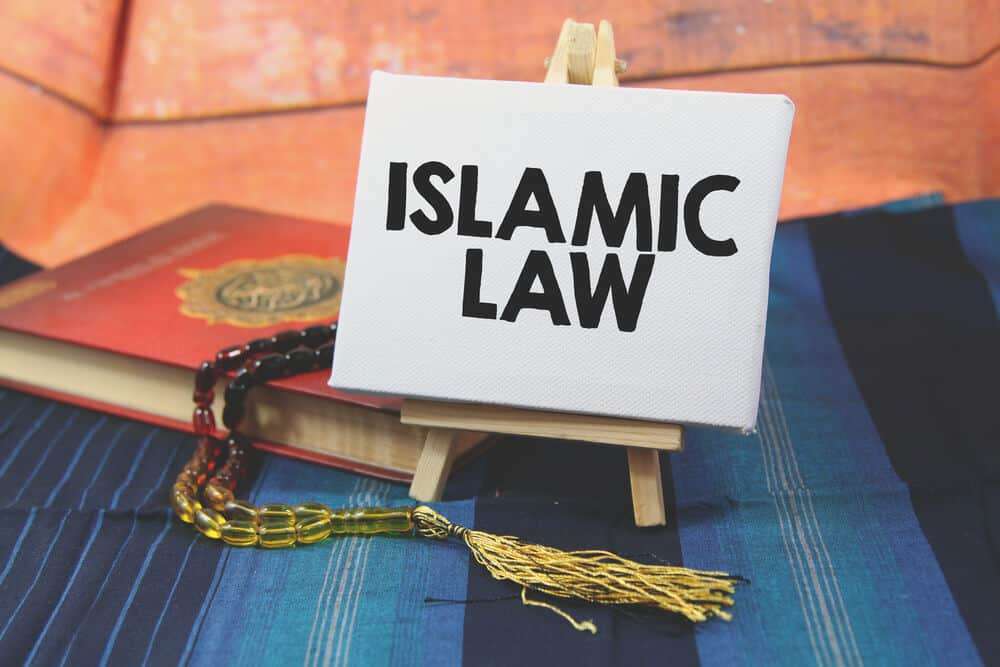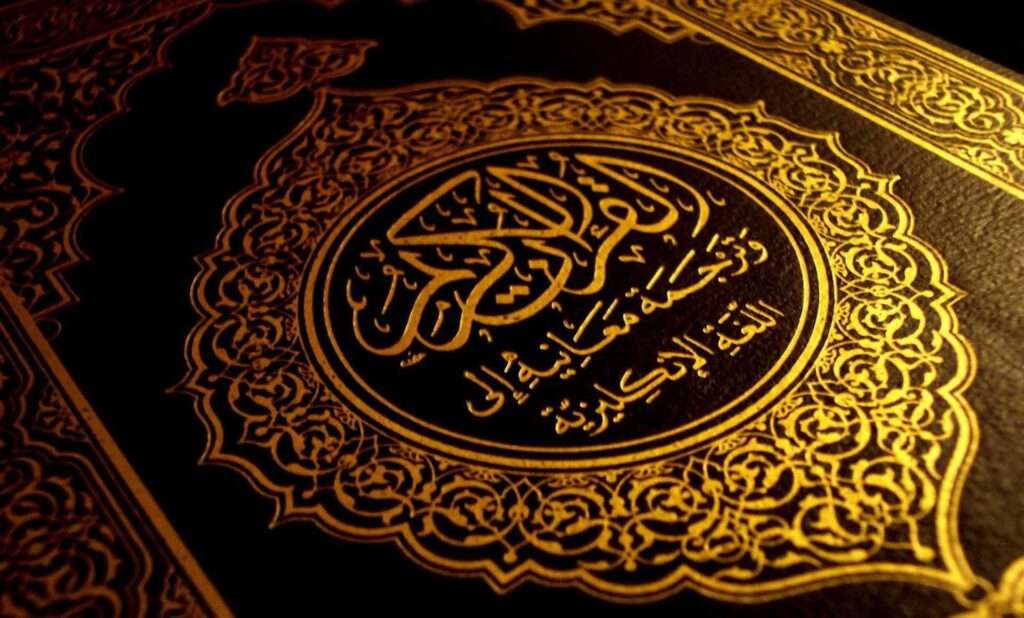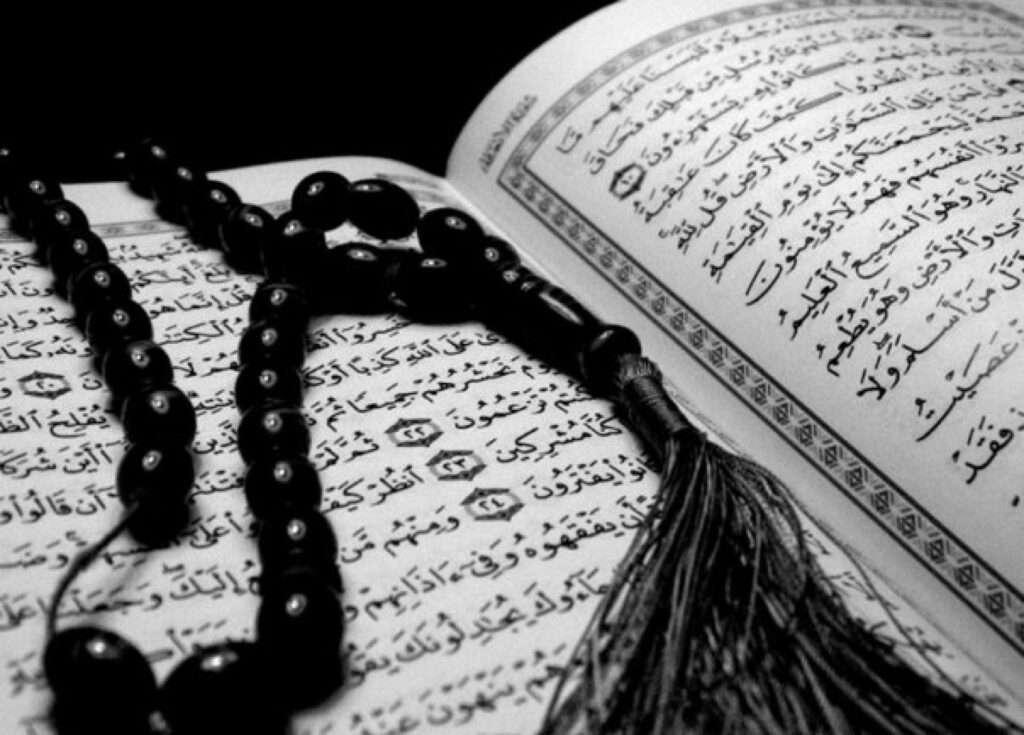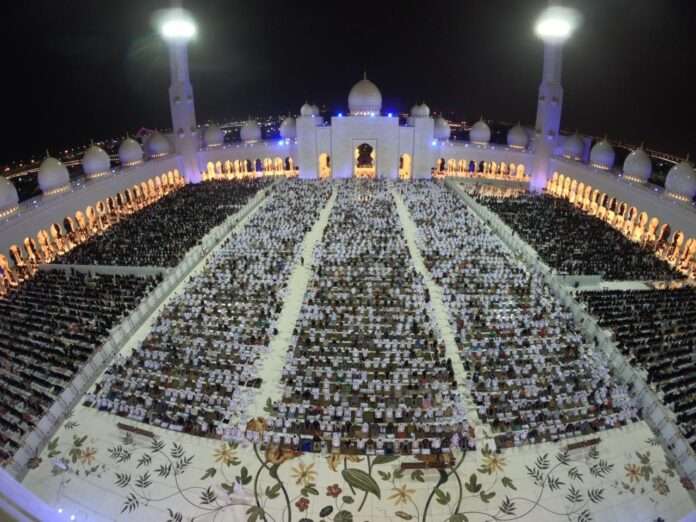O you who believe! Why do you say that which you do not do? It is most hateful to Allah that you should say that which you do not do. (Quran;61:2-3)[1]
Introduction
The Muslims formed a great civilization and led the world for about a millennium. They have been in decline for the last few centuries. Some factors that may have contributed to the relative underdevelopment of certain Muslim-majority countries including Pakistan, are: Colonialism, internal conflicts, corruption and lack of education. It is important to recognize that these are complex issues with no simple solutions. However, addressing these factors could help pave the way for greater development and prosperity in Muslim-majority countries including Pakistan. Some people blame Mullah and Islam being anti-development and anti-modernism. How far this opinion is related with reality is a matter of debate and controversy but this article will clarify that Islam cannot be blamed.
Is Islam an Impediment to the Growth and Development of Muslims?
Islam is fundamental to the Muslims, in Pakistan they want it to be implemented in every sphere except ‘themselves’. Hence it remains a theoretical ideology, limited to constitutional provisions only, though history proves otherwise. Islam is used by political, religious and military leaders and others, as tool to advance their agenda and gain popular support among masses, it reminds:
We are chasing an Islamic order stripped of its humanism, aesthetics, intellectual quests and spiritual devotions…. concerned with power not with the soul, with the mobilization of people for political purposes rather than with sharing and alleviating their sufferings and aspirations.”[Eqbal Ahmad][2]
Islam is a very broad term which has unlimited universal application, however it has been well defined concisely in Hadith Jibreel[3] which is a summary of fundamentals from the Quran. Anyone believing and practicing these eleven fundamentals[4] (6+5) is a Muslim and entitled to paradise. The practice of Islamic fundamental principles leads to creation of a cohesive society (Ummah) with equality, justice, fairness, mutual respect and human rights, which was demonstrated and are well preserved in history. To recreate or repeat history, strict adherence and practice of these fundamentals is required. Ignoring this proven reality and expecting good results is futile, farce, just show off. The priority is accorded to belief and worship rituals, which should lead to society with higher standards of ethics and morality, but unfortunately the balance has not been maintained. Thus Muslims have become a crowd of ritualistic people.
Human development is happening at an inconceivable pace, hence every modern branch of knowledge or theory can be tested on Islamic fundamentals, if it is not in conflict or if some part is found to be in conflict with any Islamic principle, that part can be removed, thus conforming it Islam. This thumb rule will keep the Muslims in the race for progress and is in line with the frequent Quranic supplication, asking God for:
“good in this world and hereafter” (Quran 2:201)[5]
The Quran provides full guidance till eternity, Allah declares:
“We have not neglected anything in the Book” (Quran 6:38)[6] It can be inferred from this verse that the Quran contains guidance and knowledge on all aspects of life, including spiritual, moral, social, economic, and political issues. The Quran is a complete and comprehensive guide for humanity, providing guidance on all aspects of life and addressing the needs of individuals and society in every era and in every place.
It is important to note, however, that while the Quran contains guidance on a wide range of topics, it is not a textbook or manual on every specific subject. Muslims are encouraged to use their reason and intellect to apply the general principles and guidance provided in the Quran to the specific circumstances of their lives. Additionally, available Sunnah also helps in understanding and applying the Quran. The fundamental principles are a guide for every situation.
“Ask the people of knowledge if you do not know”(Quran 16:43)
In this verse (16:43) a very simple but important general principle is drawn that a person who does not know should learn from those who know (Baseerat e Quran by by Maulana Muhammad Asif)
This verse encourages Muslims to seek knowledge from those who have expertise and knowledge in a particular field. It highlights the importance of seeking knowledge and guidance from qualified individuals and recognizing their authority in matters of knowledge of their expertise. Seeking knowledge is a sacred duty and acquiring knowledge is an ongoing process that continues throughout one’s life.
The scholars, which includes scholars of religion and experts in different fields have to apply the Quranic principles of to determine usefulness of modern systems and theories in different fields:
Natural Sciences: This branch of knowledge deals with the physical world and its phenomena. It includes subjects such as physics, chemistry, biology, geology, and astronomy.
Social Sciences: This branch of knowledge deals with the human world and its behavior. It includes subjects such as sociology, psychology, anthropology, economics, and political science.
Humanities: This branch of knowledge deals with human culture, art, and literature. It includes subjects such as history, philosophy, literature, linguistics, and religious studies.
Applied Sciences: This branch of knowledge applies scientific principles to practical problems. It includes subjects such as engineering, medicine, and computer science/ IA (Artificial Intelligence)
Fine Arts: This branch of knowledge is concerned with creative expression and aesthetics.
Quran has specified permissible (halaal) and prohibitions (haraam), those not mentioned can be desirable (mustahab) if closer to halal or detestable (makrooh) if closer to haraam, it may be applied to eatables as well as others.
Shaikh Abdah, was questioned by a Frenchman that, Quran claims to have everything, where is the procedure to repair shoes? He asked him to read the Quran verse 16:43. (mentioned above).

Islamic Sharia Law
Islamic Sharia Law prescribes punishments for a variety of crimes, including some of the most severe offenses such as murder, theft, adultery, and consumption of alcohol. Here are some of the basic crimes on which Islamic Sharia punishment is prescribed in Islam:
Theft: In Islamic law, the punishment for theft is amputation of the offender’s hand. However, this punishment is subject to certain conditions and is not applied in all cases.
Adultery: The punishment for adultery in Islam is stoning to death. However, this punishment requires four eyewitnesses to the actual act of intercourse, and if these requirements are not met, the punishment cannot be applied. This punishment is not mentioned in Quran, however if Sunnah of Prophet (Pbuh) is to be followed then, it must be known that the Prophet (Pbuh) turned away from those who themselves confessed adultery (sine was hidden from public) and desired to be punished, but the Prophet (Pbuh) ignored them, even asked about mental health of such a person, thus giving them an opportunity to repent. (Sahih Muslim: 1691, Al-Bukhari: 6815, Sahih Muslim: 1695). However, on their repeated witness against themselves he awarded punishment. Unfortunately this Sunnah is lost, which should be revived.
Murder: Islamic law prescribes the death penalty for murder, but the family of the victim has the right to forgive the offender in exchange for blood money.
False accusation of adultery: A person who falsely accuses someone of adultery can be punished with 80 lashes.
Consumption of alcohol: In Islam, consuming alcohol is considered a sin, and the punishment for it is 80 lashes.
It is important to note that the implementation of Islamic law varies across different countries and regions, and some Muslim-majority countries have modified the punishments prescribed by Islamic law or have abolished them altogether. They have found appropriate reasons and arguments, beyond the scope of this paper. Leverage has been proved to the governments on other crimes and punishment, hence Islam is not a roadblock to progress. I help to maintain law and order, peace in society.
The Real roadblock to progress and development is non-adherence to Islamic teaching and our hypocritical behavior[7].
Allah says:
O you who believe! Why do you say that which you do not do? It is most hateful to Allah that you should say that which you do not do. (Quran;61:2-3)[8]
The Messenger of Allah (Pbuh) mentioned signs of a hypocrite[9], he said, “Whoever has the following four (characteristics) will be a pure hypocrite and whoever has one of the following four characteristics will have one characteristic of hypocrisy unless and until he gives it up:
• Whenever he is entrusted, he betrays.
• Whenever he speaks, he tells a lie.
• Whenever he makes a covenant, he proves treacherous.
• Whenever he quarrels, he behaves in a very imprudent, evil and insulting manner.
[Sahih al-Bukhari 34, Book 2, Hadith 27, Chapter: The signs of a hypocrite][10]
“Indeed, the hypocrites will be in the lowest depths of the Fire – and never will you find for them a helper” (Quran 4:145)[11]
The majority of our rulers and people have abundant of these evil qualities- the hypocrite’s status is the lowest in hell, even lower than disbeliever (kafir)- when we leave hypocrisy and become believers, the problems will end.
Permissible and Not Permissible (Halal Haraam)
Allah says: “Say: Who has prohibited the embellishment of Allah which He has brought forth for His servants and the good provisions? Say: These are for the believers in the life of this world, purely (theirs) on the resurrection day; thus do We make the communications clear for a people who know.”(Quran;7:32)[12]
It was narrated that Salman AlFârisi said: “The Messenger (Pbuh) of Allah said:
‘What is lawful is that which Allah has permitted, in His Book and what is unlawful is that which Allah has forbidden in His Book. What He remained silent about is what is pardoned.”(Ibn Majah 3367)[13]
Mabah (مباح) is an act in which both the action (to do) and the forbidden (not to do) are equal and one does not have priority over the other. All the actions which are neither halal nor haram in the Sharia are called Mubah. For example, eating delicious food and wearing fancy clothes, etc.

99 Verses From Quran – Summarized
Quran is full of guidance, the Commands of Allah[14] were practiced by Prophet (Pbuh) as an example (Sunnah), which proves that it is not theoretical guidance but need to be practiced. Few important commands are summarized as follows:
1. Do not be rude in speech (3:159)
2. Restrain Anger (3:134)
3. Be good to others (4:36)
4. Do not be arrogant (7:13)
5. Forgive others for their mistakes (7:199)
6. Speak to people mildly (20:44)
7. Lower your voice (31:19)
8. Do not ridicule others (49:11)
9. Be dutiful to parents(17:23)
10. Do not say a word of disrespect to parents (17:23)
11. Write down the debt (2:282)
12. Do not follow anyone blindly (2:170)
13. Grant more time to repay if the debtor is in hard time (2:280)
14. Don’t consume interest (2:275)
15. Do not engage in bribery (2:188)
16. Do not break the promise (2:177)
17. Keep the trust (2:283)
18. Do not mix the truth with falsehood (2:42)
19. Appointment on merit, Judge with justice (4:58)
20. Stand out firmly for justice (4:135)
21. Wealth of the dead should be distributed among his family members (4:7)
22. Women also have the right for inheritance (4:7)
23. Do not devour the property of orphans (4:10)
24. Protect orphans (2:220)
25. Do not consume one another’s wealth unjustly (4:29)
26. Try for settlement between people (49:9)
27. Avoid suspicion (49:12)
28. Do not conceal witnesses (2:283)
29. Do not spy or backbite (49:12)
30. Spend wealth in charity (57:7)
31. Encourage feeding poor (107:3)
32. Help those in need by finding them (2:273)
33. Do not spend money extravagantly (17:29)
34. Do not invalidate charity with reminders (2:264)
35. Honor guests (51:26)
36. Order righteousness to people only after practicing it yourself(2:44)
37. Eat and drink of the provisions of Allah and do not act corruptly in the land, making mischief. (2:60)
38. Do not prevent people from mosques (2:114)
39. Fight only with those who fight you (2:190)
40. Keep the etiquettes of war (2:191)
41. Do not turn back in battle (8:15)
42. No compulsion in religion (2:256)
43. Believe in all prophets (2:285)
44. Do not have sexual intercourse during menstrual period (2:222)
45. Breast feed your children for two complete years (2:233)
46. Do not even approach unlawful sexual intercourse (17:32)
47. Choose rulers by their merit (4,58. 2:247)
48. Do not burden a person beyond his scope (2:286)
49. Do not become divided (3:103)
50. Think deeply about the wonders and creation of this universe (3:191)
51. Men and Women have equal rewards for their deeds (3:195)
52. Do not marry those in your blood relation (4:23)
53. Family should be led by men (4:34)
54. Do not be miserly (4:37)
55. Do not keep envy (4:54)
56. Do not kill each other (4:92)
57. Do not be an advocate for deceit (4:105)
58. Do not cooperate in sin and aggression (5:2)
59. Cooperate in righteousness (5:2)
60. ‘Having majority’ is not a criterion of truth (6:116)
61. Be just (5:8)
62. Punish for crimes in an exemplary way (5:38)
63. Strive against sinful and unlawful acts (5:63)
64. Do not enter parents’ private room without asking permission (24:58)
65. Dead animals, blood, the flesh of swine are prohibited (5:3)
66. Avoid intoxicants and alcohol (5:90)
67. Do not gamble (5:90)
68. Do not insult others’ deities (6:108)
69. Don’t reduce weight or measure to cheat people (6:152)
70. Eat and Drink, But Be Not Excessive (7:31)
71. Wear good cloths during prayer times (7:31)
72. Protect and help those who seek protection (9:6)
73. Keep Purity (9:108)
74. Never give up hope of Allah’s Mercy (12:87)
75. Allah will forgive those who have done wrong out of ignorance (16:119)
76. Invitation to God should be with wisdom and good instruction (16:125)
77. No one will bear others’ sins (17:15)
78. Do not kill your children for fear of poverty (17:31)
79. Do not pursue that of which you have no knowledge (17:36)
80. Keep aloof from what is vain (23:3)
81. Do not enter others’ houses without seeking permission (24:27)
82. Allah will provide security for those who believe only in Allah (24:55)
83. Walk on earth in humility (25:63)
84. Do not neglect your portion of this world (28:77)
85. Invoke not any other god along with Allah (28:88)
86. Do not engage in homosexuality (29:29)
87. Enjoin right, forbid wrong (31:17)
88. Do not walk in insolence through the earth (31:18)
89. Women should not display their finery (33:33)
90. Allah forgives all sins (39:53)
91. Do not despair of the mercy of Allah (39:53)
92. Repel evil by good (41:34)
93. Decide on affairs by consultation (42:38) (sign to democracy)
94. Most noble of you is the most righteous (49:13)
95. No Monasticism in religion (57:27)
96. Those who have knowledge will be given a higher degree by Allah (58:11)
97. Treat non-Muslims in a kind and fair manner (60:8)
98. Save yourself from covetousness (64:16)
99. Seek forgiveness of Allah. He is Forgiving and Merciful (73:20)

Conclusion
Allah’s Messenger of Allah (Pbuh) said:“Do you know who is poor?”
They (the Companions of the Holy Prophet) said: A poor man amongst us is one who has neither dirham with him nor wealth.
He (Pbuh) said:“The poor of my Umma would be he who would come on the Day of Resurrection with prayers and fasts and Zakat but (he would find himself bankrupt on that day as he would have exhausted his funds of virtues) since he hurled abuses upon others, brought calumny against others and unlawfully consumed the wealth of others (corrupt) and shed the blood of others and beat others, and his virtues would be credited to the account of one (who suffered at his hand). And if his good deeds fall short to clear the account, then his sins would be entered in (his account) and he would be thrown in the Hell-Fire.(Abu Huraira reported, Saheeh Muslim; 6579)[15]
The Messenger of Allah (Pbuh) said:
“The claimants would get their claims on the Day of Resurrection so much so that the hornless sheep would get its claim from the horned sheep.” (Though there is no punishment or reward for animals, yet there will be retribution). (Sahih Muslim 6529)[16]
The Messenger of Allah (Pbuh) also indicated four signs of hypocrite:
(i) Whenever he is entrusted, he betrays.
(ii) Whenever he speaks, he tells a lie.
(iii) Whenever he makes a covenant, he proves treacherous.
(iv) Whenever he quarrels, he behaves in a very imprudent, evil and insulting manner.
Why are there political, economic, and social crises in Pakistan? Hypocrisy, moral degeneration and lack of respect for human rights (huqooq-ul-ibaad) are the biggest roadblocks in the progress and development of Pakistan and Muslims around the world.
References:
https://SalaamOne.com/ethics
[1] https://tanzil.net/#trans/en.shakir/61:1
[2] https://en.wikipedia.org/wiki/The_Selected_Writings_of_Eqbal_Ahmad
[3] https://bit.ly/Hadith-Jibriel, https://quran1book.wordpress.com/2022/08/21/jibriel/
[4] https://bit.ly/TejdeedEmaan
[5] https://trueorators.com/quran-tafseer/2/201
[6] https://quran.wwpa.com/page/verse-6-38, https://trueorators.com/quran-tafseer/6/38
[7] https://bit.ly/Pak-IssueNumber-1, https://bit.ly/AntiCorrutiponJihad
[8] https://tanzil.net/#trans/en.shakir/61:1
[9] https://tcpwebs.blogspot.com/2021/01/Munafqat.html, https://bit.ly/MunafiqPolitics
[10] https://sunnah.com/bukhari:34
[11] https://trueorators.com/quran-translations/4/145, https://bit.ly/MunafiqPolitics
[12] https://trueorators.com/quran-translations/7/32
[13] (3367 :سنن ابن ماجہ, حدیث نمبر) ٦ تخریج دارالدعوہ: سنن الترمذی/اللباس (حسن) (٤٤٩٦ تحفة الأشراف:) ،(١٧٢٦) شاہد کی بناء پر یہ حدیث حسن ہے، تراجع)٤٢٨ الألبانی: رقم:)
[14] https://salaamone.com/ethics/
[15] https://islamicurdubooks.com/hadith/hadith-.php?hadith_number=6579&bookid=2&tarqeem=1
[16] https://al-hadees.com/hadees-details/muslim/6529




